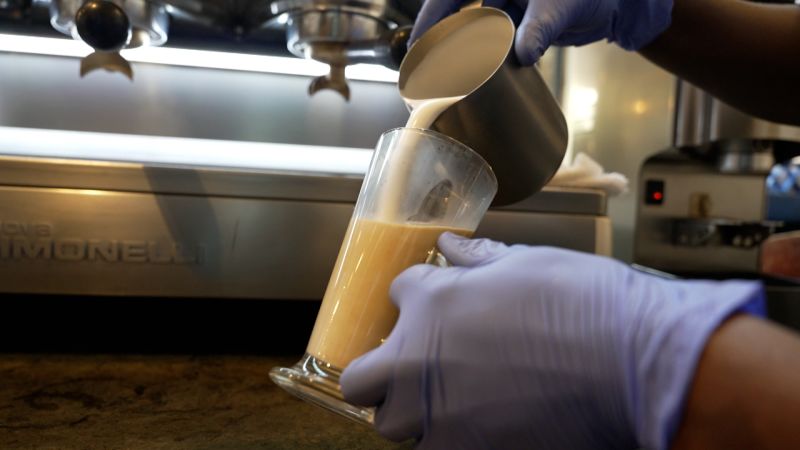The Rising Camel Milk Industry in Kenya
A Unique Beverage Trend
In recent times, camel milk has started to capture the attention of the beverage industry, particularly in coffee shops across Africa. This trend is exemplified by the introduction of drinks such as “camel-ccinos” and “camelattes” at various restaurants in Nairobi, Kenya. This innovation is paving the way for camel milk to emerge as a staple in both local and international markets.

A Long-standing Tradition
While camel milk may seem like a new phenomenon in coffee shops, it has a rich history of consumption among pastoral communities across Africa, who have utilized this resource for centuries. The Kenyan government aims to tap into this existing knowledge, positioning camel milk as the next jewel in the country’s export crown.

The Camel Population in Kenya
According to the Kenya Camel Association, it is estimated that around four million camels inhabit the arid regions of Kenya, which constitutes a significant population on the African continent. Notably, Africa is home to over 80% of the world’s camel population, making it an important area for camel milk production.

Remarkable Drought Resistance
Camels offer unique advantages over traditional livestock, primarily due to their exceptional drought resistance. By storing fat in their humps, camels can convert this fat into water, thereby minimizing resource requirements. This capability allows them to continue milk production, even in the face of climate challenges that impact the Kenyan landscape.

Economic Potential of Camel Milk
The camel milk industry in Kenya holds significant economic promise. The Kenya Camel Association projects that this sector could reach a valuation of approximately $200 million. As Kenyan producers look to export camel milk to international markets like the US and UK, they are focusing on innovative packaging solutions, which may include both raw and powdered forms of camel milk.

A Leading Producer
One prominent player in the camel milk industry is White Gold Camel Milk, which produces around 500 liters of camel milk daily, supplying major supermarkets throughout Kenya. The CEO, Jama Warsame, enthusiastically refers to camel milk as “the milk of the future,” highlighting its promising trajectory.

Health Benefits
Camel milk is also praised for its numerous health benefits, which include reducing cholesterol levels and improving digestive disorders. Furthermore, some studies indicate that it may be effective in managing diabetes, making it a valuable addition to a healthy diet.





